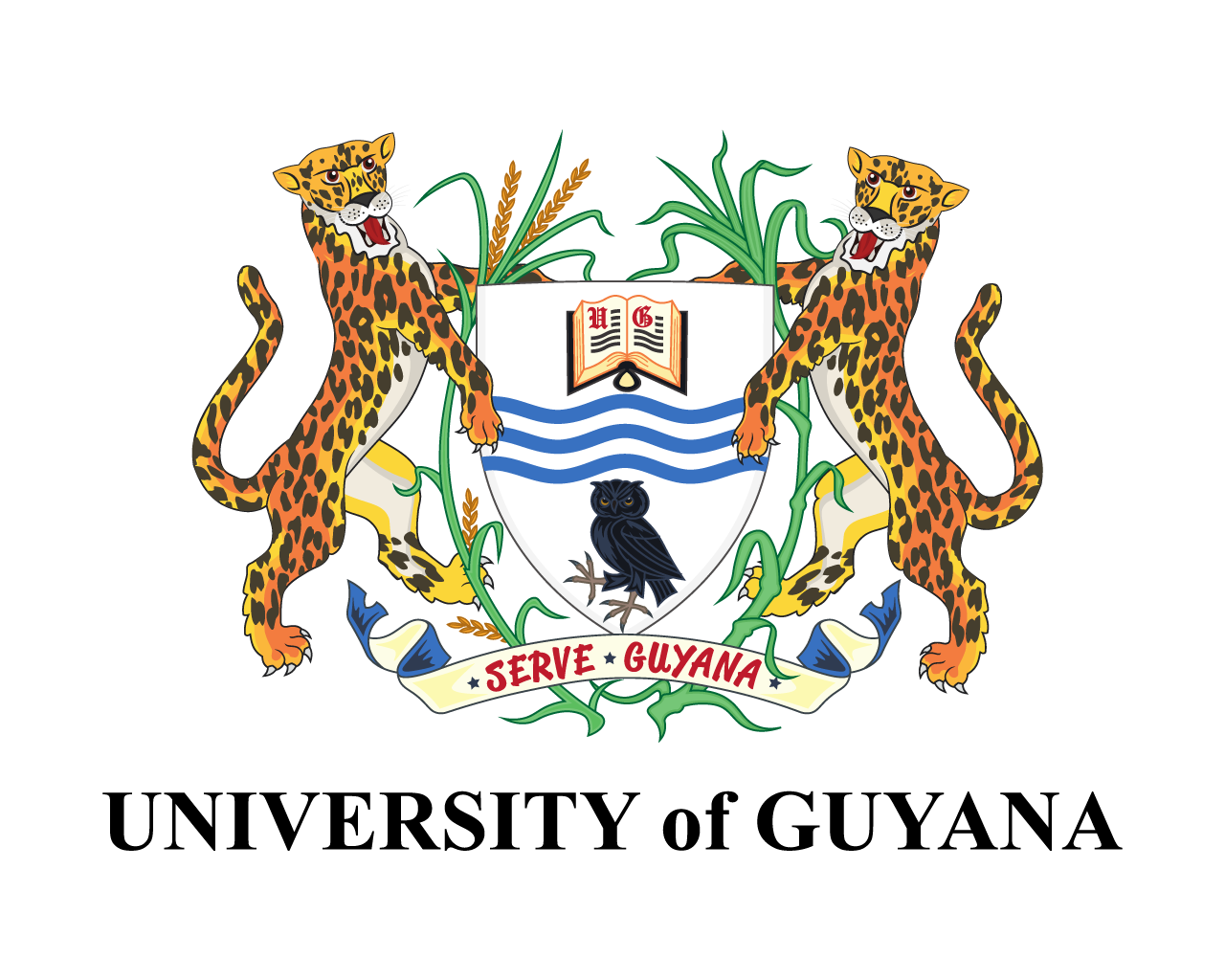
More policies, systems needed for diaspora to return
Wednesday, August 2, 2017 - 23:45Describing the diaspora as a “sleeping giant,” Professor Dhanpaul Narine of New York (NY) says more systems and policies need to be put in place to encourage overseas-based Guyanese to return home to invest.
On the second day of the five-day Diaspora Engagement Conference that is being held at the Ramada Princess Hotel, East Bank Demerara, he said that politicians are not doing enough to tap the enormous resource of Guyanese living abroad.
The conference, organized by the University of Guyana (UG) is being held under the theme: “Dreaming Diaspora Engagement, Doing Diaspora Engagement.”
Over 200 stakeholders and leaders in the diaspora are engaging in various forums and symposiums towards the strengthening of partnerships with overseas organisations.
Dr. Narine said that the Guyanese diaspora feel like “outsiders trying to get in but are being pushed out.”
He said too that the politicians would only contact the diaspora about returning home during elections time. He hopes that the conference would bring about some changes in that regard.
Dr. Narine told Stabroek News (SN) that “there is a lot of talk about investing but we still have to wait and see,” noting that people “are not going to come and invest unless the ‘climate’ is right.”
He was referring to the benefits of serving for several years in the diaspora and then returning to serve locally and about the rights of the children of Guyanese parentage who may want to here.
He said Guyana should take note of the way the diaspora is being treated in Jamaica and Haiti.
According to Dr. Narine, Jamaica has a very robust diaspora policy with a minister and the diaspora is seen as an extension of the Jamaican society.
In Haiti, which is poorer than Guyana there is a ministry for Haitians abroad. In Guyana, though the diaspora is part of the Ministry of Foreign Affairs programmes, the subject minister could not make it to address them on the first day of the conference, he lamented.
Foreign Minister Carl Greenidge was expected to outline “what Guyana aims to do to engage its Diaspora in the most meaningful way as the world undergoes severe global changes.”
Dr. Narine pointed out that he writes a lot of recommendations for skilled young people to volunteer their services in the Dominican Republic and places in Africa but they have never been here.
When he inquired why they were not doing the same for Guyana they responded that no one was telling them much about here. They also said that they have written letters seeking permission to come and volunteer here but nobody responded.
Dr. Narine said since he has been living in NY he has always taken an active role in the life of Richmond Hill, which has an unofficial population of 250,000 Guyanese and is dubbed ‘Little Guyana.’ The population is second to the Chinese.
He said in the greater NY area, the “Guyanese population is number seven and we are making tremendous progress in all different fields; medical, accountancy, real estate and construction” while “the children are performing well at schools.”
He, along with other professors, has gotten an offer from the UG Vice Chancellor, Dr. Ivelaw Griffith, to become an ambassador of UG. Living in NY, he said, he cannot do that but be can “help to raise funds for special projects and spreading good words…”
“The conference is testimony to the good vision of the vice-chancellor because governments in this country have been talking about involving the diaspora for years but with very little being shown,” he told this newspaper.
Global diaspora
Another Professor, Naresh Singh who has lived in Ottawa, Canada for 20 years, considers himself a global citizen having lived in NY for 10 years, St. Lucia for seven years, India for two years and Jamaica for four years.
He said he attended the conference “to get a sense of the thinking” and because of his interest in helping UG. He has been a visiting Professor at many universities, including Harvard and McGill in Canada.
His vision is to reinstate the Institute for Development Studies at UG, which he believes is really needed because of the discipline and good academic training it would provide. But beyond that, he said, it is critical for the development of the country.
He said they have heard a little about the challenges of returning and although he has worked at many universities, “it keeps tugging at my heartstring about why I can’t come back and do something for UG.”
Jocelyn Marshall of New Jersey left Guyana 28 years ago and is interested in investing here. Her “aim is to come to understand the climate and the policies, learn from other people’s experience and see where I would feel comfortable in investing.”
She said through the presentations on Monday, from the government officials and others, she got information on their policies and about diaspora programmes in other countries.
On Monday, she saw a business opportunity from one of the presentations but said her challenge may be getting the immediate relevant information to get started.
Marshall, a personal empowerment coach and a former project programme manager at a bank, feels that the conference was “well put together and it was what the participants wanted. The presenters were very appropriate…”
Dr. Lear Matthews of New York City said the conference created an opportunity for frank dialogue between the diaspora and Guyana.
He hopes that it deals with some of the tensions that exist between the diaspora and local communities as well as the diaspora and government and that they can work together for the benefit of developing communities in Guyana.
A Professor of the State University of NY, he is part of the editorial planning committee for the conference.
He presented on Hometown Associations in Guyanese Organisations in North America and the connections with Guyana, the extent to which they send remittances and help communities in Guyana.
Radio broadcaster in Florida, Ron Bobb-Semple, who left Guyana 45 years ago found the conference extremely informative. He said it was “long overdue because the Guyanese diaspora has contributed so much to this nation over the years…”
He too said that the “diaspora has to be recognized. A lot of us left the country for various reasons; to improve ourselves or because of family ties… and now there is a lot of concern with a lot of Guyanese and expatriates because of what is happening…” here.
Mentality
He recalled that in a television interview in May, he had said that “the mentality of the Guyanese people has got to change; with the way you drive, the way you express yourself, how you treat others, it has got to change.”
He said the cleaning up of the city has to be continuous and not just what was done for special occasions like in the case of “the 50th celebration and then everything is back to square one.”
He gave kudos to Dr. Griffith for his initiative and his impetus to bring this conference to fruition and he glad he was able to make it.
He has made a promise to visit places in Guyana that he has never been to so as to experience its beauty.
Asked about his interest in returning, he responded that when “one has first-hand experience of the beauty of the country, one may be encouraged to come back and invest.” He is looking into various possibilities.
Bobb-Semple’s visit to Guyana is two-fold; to attend the conference and for his performance at the Theatre Guild on August 18, in celebration of Marcus Garvey’s birthday. The cultural entertainment included drama, poetry and comedy.
Meanwhile, during a session about ‘Doing Business in Guyana,’ hosted by Chief Executive Officer of the Guyana Office for Investment (Go-Invest), Owen Verwey, a participant asked about plans to establish an abattoir of international standard.
Verwey responded that an abattoir is scheduled for completion within the next 12 months in Region 9.
He said Go-Invest, together with the Livestock Development Authority and the Ministry of Agriculture visited Boa Vista in Brazil a few weeks ago to look at abattoir operations.
He said one of the largest abattoirs in the American region that has the capacity to slaughter one cow every 30 seconds, is being built in Boa Vista.
Glen Khan, the Laparkan Chairman and Chief Executive Officer, delivered the keynote address and recalled his humble days growing up in New Amsterdam, Berbice.
Even though he had dropped out of school for a year that did not prevent him from attaining 13 subjects later. Ten months later he was able to get a job at an accounting firm.
Khan, a Certified Accountant, entrepreneur and philanthropist, established Laparkan Investments Limited in 1982 in the Channel Islands, with initial operations out of Toronto, Canada and later, Laparkan Trading.
That was after he recognized the need to provide West Indians with a reliable channel to send supplies, gifts and other personal effects back home to their families in the Caribbean.
In 1983, Laparkan opened its doors in Toronto, Canada and was an instant success. Word quickly spread and within 12 months fully functional Laparkan offices and warehouses were set up in New York, Miami, London and Georgetown, Guyana.
Prominent
His address came after video messages from two prominent Guyanese living in Britain; Gina Miller and Baroness Valerie Amos, who shared their experiences.
Miller was recognized last year for forcing the British government to have a parliamentary vote on the British exit from the European Union – Brexit. She objected to no Parliamentary discussion and won her case at the Supreme Court.
She grew up on the East Coast of Demerara and attended St Gabriel’s Primary in Georgetown. Her parents: Doodnauth and Savitri Singh taught discipline and the virtue of hard work. At the age of 13 they sent her to Britain to join her older brother, Gary, where she attended boarding school.
Miller is an investment manager and philanthropist and co-founded the investment firm in 2009. She launched True and Fair with her hedge fund manager husband, Alan, which campaigns against mis-selling and hidden fund charges in the City of London’s fund management industry.
Baroness Amos in her video message, spoke about growing up in Wakenaam and having the freedom to run around and of her mother tutoring her. Sadly, she recalled the tough time her family faced when her mother died on the morning of her father’s funeral.
Coming from a family of teachers, it was no surprise that she decided to offer support to young black men such as with university scholarships, after data proved that they had the highest dropout rate. She is proud that they started with nine young men and now have over 90. “Seeing them stand up and say how they did it, is incredible,” she said.
Baroness Amos who has lived in Britain since the age of nine, said she thinks of herself as a Guyanese, from the Caribbean and from Britain.
From 2010, she served as Undersecretary General for Humanitarian Affairs and Emergency Relief Coordinator at the UN. She served in a number of roles in the public sector including in local government and as Chief Executive of the Equal Opportunities Commission.
She was an adviser to the Mandela Government on leadership, change, management and strategy issues between 1994 and 1998.
She was appointed a Labour Life Peer in 1997 and became a member of the Government in 1998. She was a Foreign Office Minister, Secretary of State for International Development, Leader of the House of Lords and Lord President of the Council. She also served as UK High Commissioner to Australia before joining the UN. In June 2016, she was made a Companion of Honour in the Queen’s Birthday Honours list.
Article adapted from: https://www.stabroeknews.com/2017/news/stories/07/27/more-policies-systems-needed-for-diaspora-to-return/
